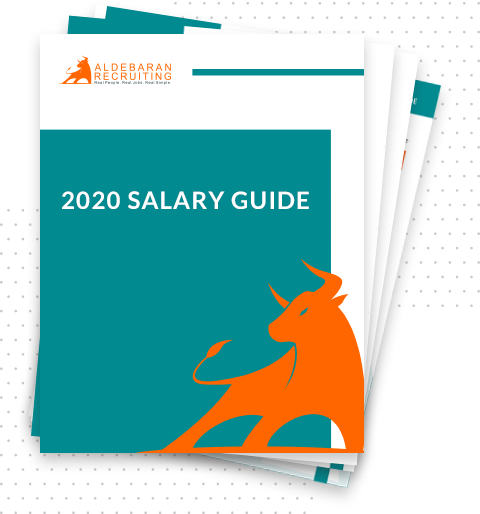Finding a headhunter, typically, is going to involve a lot of the upfront research and getting referrals from people that you know, etc., There are some other, more in depth, pieces that we’ll cover in this blog.
HEADHUNTERS VS. RECRUITERS
Headhunters can be an extremely critical aspect of your hiring process. A headhunter is different than a recruiter, although headhunters are also recruiters. This is someone who is going to go out and proactively search for candidates on your behalf. They are specialists at understanding their client’s needs and going out and networking to find specific talent for specific roles. A headhunter is a specialist in the sense that they, and only they, are going to know exactly what it takes to do the proactive work to find you specific talent for a specific role.
If you have a position that you can post on job boards and find good candidates for, then you do not need a headhunter for that position. Headhunters are more like a secret weapon that you are going to want to yield for specific roles. This is why headhunters are typically used at the executive level, like Director, VP, and C suite.
But headhunters can oftentimes be used at the entry and mid-level as well. In fact, many of our clients use us at the mid-level, as mid-level professionals are becoming harder and harder to recruit in today’s market. There is actually more of an abundance of senior people than there are of very solid mid-level people. Most organizations are weak when it comes to having strong mid-level people. Especially when it comes to hiring millennials.
CLARIFYING YOUR NEEDS
When you’re looking to hire a headhunter, the thing that is most important for you to get clear about first is what your specific need is. You’re going to want to hire a headhunter that is good and specialized in your specific need. But don’t go to crazy here! Many companies think they need to find a headhunter who does exactly what they do. The truth is, most headhunters specialize in an industry or a niche, not in a particular position.
And headhunting is a skill that can be applied to different industries. A good headhunter can use his network and skills of recruiting to head hunt any type of position. This is what makes a good headhunter a good headhunter. You want someone who knows what it takes to recruit and hunt top talent for any position.
You should actually be more focused in on if the recruiter understands what they’re doing. Do they know how to hunt, have a network, seem smart enough to understand your company, your position and your role? These smarts and these know-how are going to be way more important than someone who happens to work in your industry. Just because they work in your industry, doesn’t mean they’re a good headhunter. Now, if you can find a good headhunter who also specializes in your industry, then you’ve struck gold. This is someone that you want to bring onto your team as an asset.
INTERVIEWING POTENTIAL HEADHUNTERS
When it comes to hiring a headhunter, it’s important to know how to interview them, very similar to interviewing candidates. Many companies make mistakes when interviewing a headhunter because they ask simple yes or no questions that are too easy to answer, and therefore they don’t fully screen and vet properly.
You can’t ask a headhunter if they have experience working in marketing? It’s too easy for that headhunter to say yes. Instead, ask the headhunter to give you examples of some of the positions they’ve recently worked and had success with and some of the types of companies they’ve had success with. You’ll also want to find out about what types of markets they’ve had success working in.
Asking more open-ended questions and having the recruiter fill-in-the-blanks is going to give you a lot better insight into what kind of work they do. Ask them to explain to you some of the specifics or some of the niche details of some of the positions they have worked recently.
Another question you can ask a headhunter is about their process. A good headhunter is never going to give you their whole process, but will give you some insight into what they do. Ask the headhunter what they do and what about their process is unique. These kinds of questions are going to flesh out for you about this headhunter’s style.
HONING IN ON YOUR INDUSTRY
You can also ask them questions about your industry. Asking questions about your industry or the specific position you’re working will have answer in a way that will tell you if they actually have the technical know-how of the position that you’re looking to fill.
Some clients like to have recruiters give them a reference. In other words, they want to talk to one of the recruiter’s other clients to get a reference or insight into working with them. Just like we don’t recommend references with candidates, we also don’t recommend references when it comes to hiring a recruiter or a headhunter.
The reason being is that everybody has at least one or two good references. Whether they’re good or bad at recruiting, their reference is never going to be bad. Talking to references is not the best use of your time when it comes to working with somebody. If you’re able to interview someone and get a good feeling for them, then you should be able to run with that.
RETAINED VS. CONTINGENCY
The last piece here comes down to if you’re gonna hire the recruiter as a contingency headhunter or as a retained headhunter. This is a critical topic and it depends on how urgent your need is and how much challenge you’re having finding good people. If you have an urgent need and you’re challenged finding good people, it’s most likely going to make sense to go with the retainer model. A retainer model is more risky, but almost guarantees results if you’re working with the right headhunter.
Headhunters working from a contingency perspective can only give so much priority to their contingency positions. Retained positions always gain priority, and the recruiter is going take it to the very end until the position gets filled. A lot of companies make a big mistake hiring headhunters on a contingency basis when what they really need is a retained headhunter. Don’t let the fear of spending a little bit of money upfront, and taking some risk, stop you from taking the course that’s going to produce the best and fastest results.
CONCLUSION
The key is that you have interviewed your recruiter or headhunter correctly, so that you take out a lot of the risk when it comes to paying that retainer. Retainers are wildly more effective than contingency searches. For example, here at Aldebaran, our fill rate on retained searches is 95% with over 17 years in business, whereas our contingency fill rate is close to 70%, this is a very large difference.
We can guarantee prioritization of our VIP retained searches indefinitely. With contingency, we can only guarantee so much, and the more challenging your position is, the less we can guarantee it because it’s too risky.
This should give you some tips when it comes to hiring a headhunter. Headhunters are critical aspects to an organization when it comes to hiring specific talent. So you want to know when you need one and when you don’t need one. When you do need a headhunter, make sure you’re smart about it.



